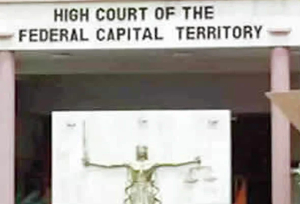Accra, April 19, GNA - The Acting Commissioner of the Commission on Human Right and Administrative Justice (CHRAJ) Ms Anna Bossman, on Thursday said the Freedom of Information legislation was crucial to clear some of the vestiges of state power to hold on to critical information in the name of security of the state and national interest. She noted that such formulations had often impeded access to information, which was a fundamental right and important to promote poverty eradication, accountability, transparency and minimize corruption.
Delivering the second in a series of the "Bannerman Lectures" instituted by the Africa Institute of Journalism, Ms Bossman said there was no doubt that the media and civil society had been important drivers of change in the country.
The lecture, on the theme: "The Media, Law and Public Accountability", is in honour of the pioneer journalists Charles and Edmund Bannerman, who founded the Accra Herald, which later become the West African Herald in 1858.
She said the change was desirable due to the excellent investigative work by some of the independent newspapers in putting corruption on top of the public agenda.
"But there is a strong view that both civil society and the media seem to be losing their zeal on anti-corruption reforms under the current administration", she added.
Ms Bossman noted that the media effectiveness in the promotion of accountability was severely hampered by huge gaps in the levels of professionalism and integrity among media practitioners saying, "disturbing and credible reports of emerging practice of media practitioners shake-down and 'pocket book' journalism." The Acting Commissioner indicated that a favourable legal regime for free, pluralistic and independent media should not be a license for irresponsible journalism.
"Journalist must ensure that objective reporting, moral values, higher professional standards and respect for differences of opinion become the standard bearer of their code of ethics", she added. Ms Bossman said the absence of censorship should not be taken as a license for journalists to say or do anything they desired and added that it was pertinent to note the constitutional provisions, which limited the freedoms granted.
"The media is accountable to the public as a repository of trust, that is to say the media has a constitutional duty of upholding the responsibility and accountability of the government to the people", she added.
She said the Constitution had explicitly assigned oversight role over the government to the media to ensure that government dispenses its mandate in accordance with the will of the people.
Ms Bossman argued that independent, free and objective media promoted democratic governance and at its best functions to uphold accountability, transparency and good governance in the public sector. "It is fair to say that with issues of corruption and other malfeasance, there has been more vibrancy in exposing or at least alerting the populace", she added.
General News of Thursday, 19 April 2007
Source: GNA












